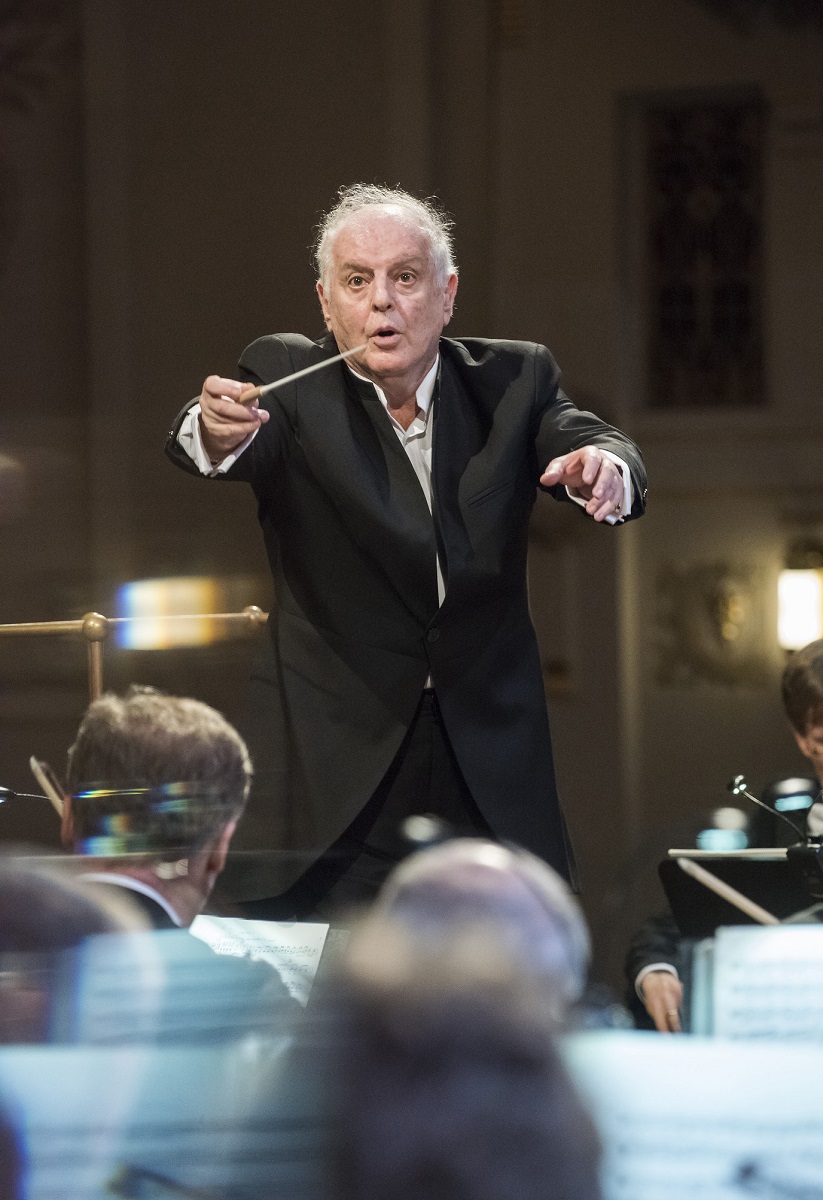Opening Concert
Important notice:
The legendary conductor and pianist Daniel Barenboim will be unable to open this year’s Prague Spring for health reasons. At Barenboim’s behest, the West-Eastern Divan Orchestrawill instead be conducted by 28-year-old Thomas Guggeis for the performance of the festival’s signature composition, My Country by Bedřich Smetana.
Programme
- Bedřich Smetana: My Country
Performers
- West-Eastern Divan Orchestra
- Thomas Guggeis - conductor
Price
No intermission
Thomas Guggeis will stand in for Daniel Barenboim
The legendary conductor and pianist Daniel Barenboim will be unable to open this year’s Prague Spring for health reasons. At Barenboim’s behest, the West-Eastern Divan Orchestra will instead be conducted by 28-year-old Thomas Guggeis for the performance of the festival’s signature composition, My Country by Bedřich Smetana.
“Withdrawing from this tour is painful,” said Daniel Barenboim, who had to be hospitalised with vasculitis. “My work with the WEDO is very special to me and I was greatly looking forward to performing Smetana’s Má vlast with them. However, at this time, I must prioritize my health and I am grateful that Thomas Guggeis has agreed to take over the tour. ‘Má vlast’ is a very poignant piece for the WEDO to be taking to European capitals, especially at this time. ‘Má vlast’ means ‘my homeland’ and it is very significant and symbolic that our orchestra, which still does not have a homeland, will be performing this piece in Prague,” noted Barenboim with regard to the West-Eastern Divan Orchestra, in which young Israeli and Arab musicians play side by side. The orchestra appears regularly at the major festivals in Salzburg and Lucerne and at London’s BBC Proms. It has also played before Pope Benedict XIV and at the UN headquarters.Thomas Guggeis will be standing in for Barenboim for the course of the whole tour of European metropolises. My Country will be performed in Paris, Milan, Munich, Brussels, and Luxembourg, culminating in the opening concert for the Prague Spring.
“We wish Mr Barenboim a speedy recovery. He will be sorely missed at this year’s Prague Spring. However, we have full confidence in Barenboim’s choice and we share the hopes that he sets on the young Thomas Guggeis. We look forward to his interpretation of My Country with much interest. Incidentally, Jakub Hrůša was also 28 years old when he opened the Prague Spring in 2010,” responded the festival director Roman Bělor.
The conductor Thomas Guggeis, who served as Daniel Barenboim’s assistant for many years, came into the limelight in March 2018, when he took over the reins of the Berlin State Opera’s acclaimed production of Strauss’s Salome after Christoph von Dohnány. Since the 2021/2022 season, he has held the post of “Staatskapellmeister” at the famed venue, and he has conducted a number of operas there – Verdi’s Falstaff, Wagner’s Lohengrin, Mozart’s Don Giovanni, or Janáček’ Jenůfa. He followed this up with a debut at the Vienna State Opera (Strauss’s Salome and Korngold’s The Dead City). The upcoming season of 2022/2023 will see him debut at the Metropolitan Opera in New York; he is also slated to serve as music director of the Frankfurt Opera. His symphonic experience includes performances with Orchestre de Paris, Staatskapelle Dresden, or the Swedish Radio Symphony Orchestra.
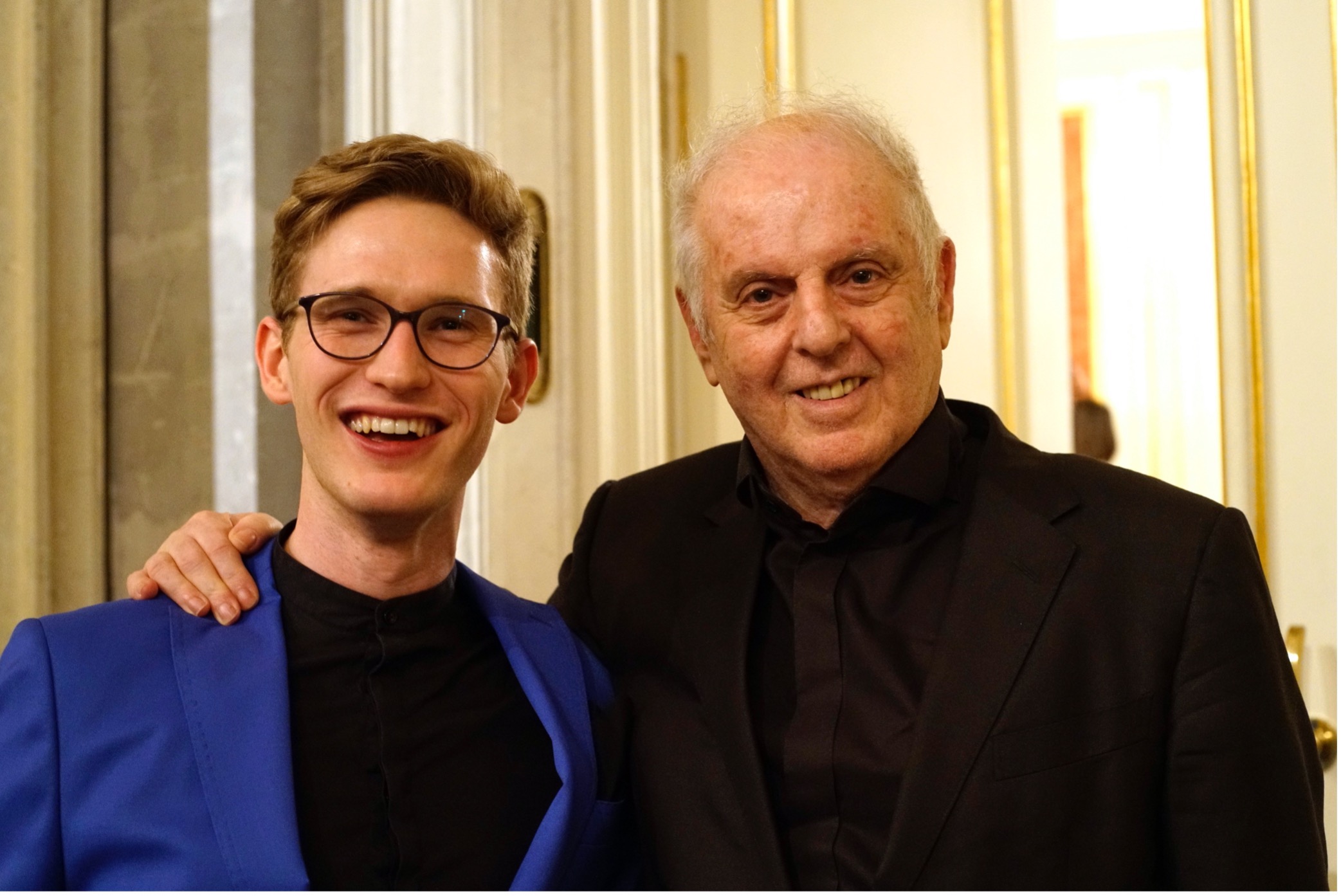
“The destinies of Israelis and Palestinians are inextricably linked”
The West-Eastern Divan Orchestra, an ensemble named for the West–östlicher Divan, a collection of poetry by J. W. von Goethe, is not an ordinary youth orchestra. It was established in 1999 as a kind of social statement. The idea of the Palestinian-American scholar and influential intellectual Edward Said (1935–2003) and of his friend Daniel Barenboim was that if the people of the Middle East are unable to come to terms politically, music as a universal language would be able to serve as a means of communication between people on opposite sides of the barricades. The only political aspect that prevails in the work of the West-Eastern Divan Orchestra is the conviction that “there is no military solution to the Arab-Israeli conflict and that the destinies of Israelis and Palestinians are inextricably linked. Music grants the individual the right and the obligation to express him- or herself fully while listening to their neighbour”.
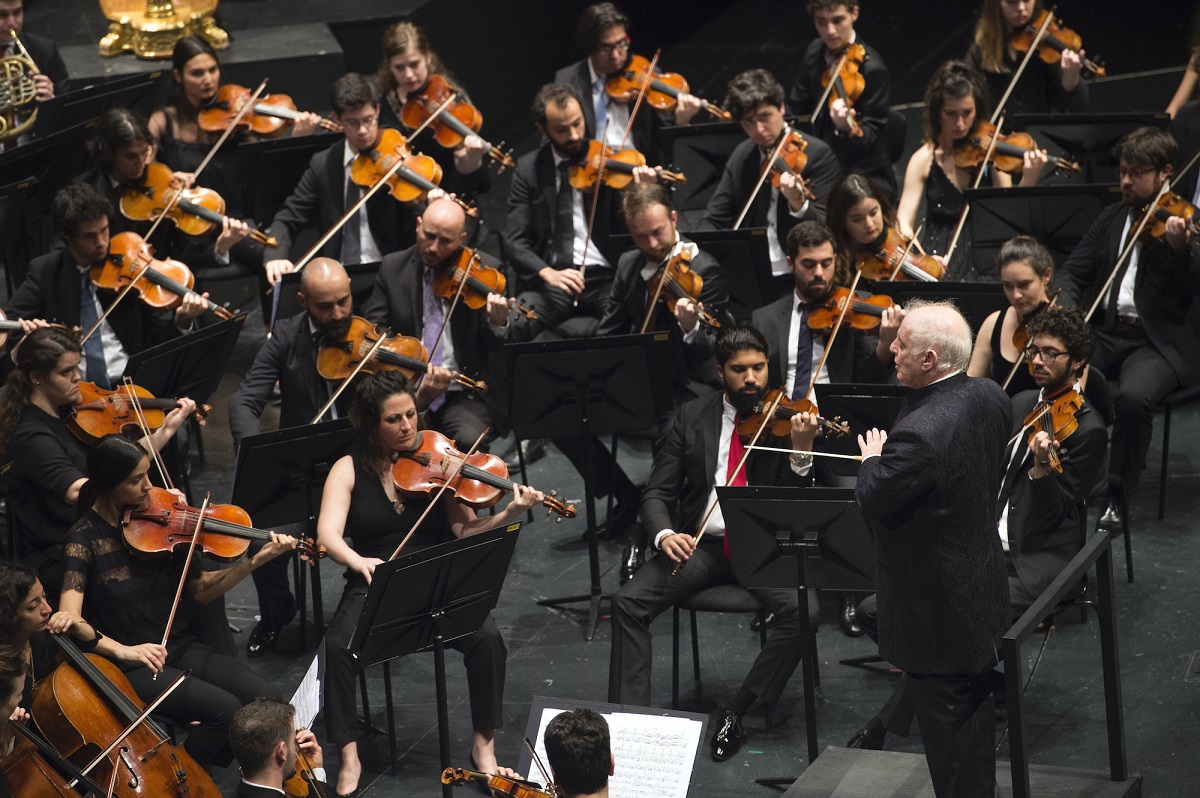
A project against ignorance
Today, the best young musicians from Israel and Palestine as well as from Egypt, Iran, Jordan, Lebanon, Syria, Spain, and Turkey come together to study musical works and to give the best of themselves under one flag. It is no wonder that in 2016 the United Nations appointed the orchestra as a Global Advocate for Cultural Understanding”. The orchestra’s founder and conductor Daniel Barenboim emphasises, however, that the thought of music bringing peace is a bit idealistic. “The Divan is not a love story, and it is not a peace story. It has very flatteringly been described as a project for peace. It isn’t. It’s not going to bring peace, whether you play well or not so well. The Divan was conceived as a project against ignorance. (…) I’m trying to create a platform where the two sides can disagree and not resort to knives.”
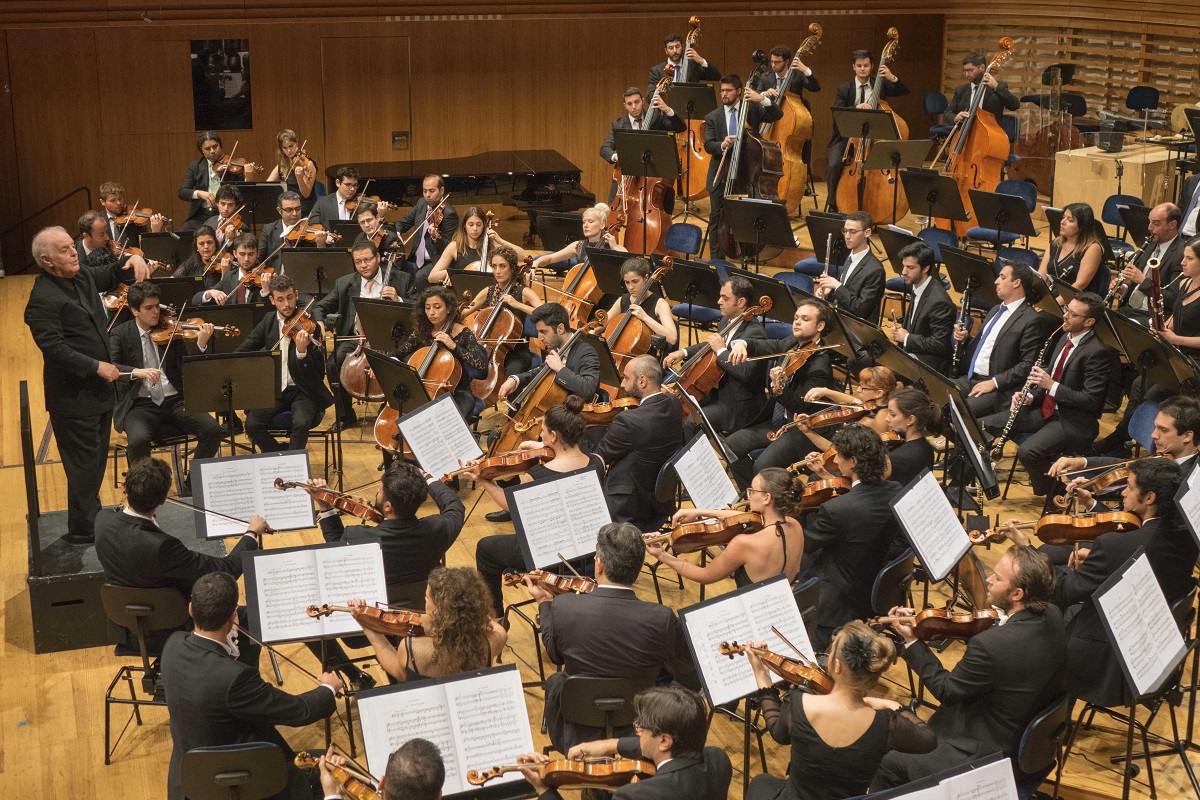
Knowledge is the Beginning
The orchestra’s first rehearsals took place in Weimar and Chicago, and the orchestra is now based in the Spanish city Seville, where it is supported by the regional government of Andalusia. The musicians usually gather there each summer before going on tour. The orchestra hasplayed before Pope Benedict XIV and at the UN headquarters, and at London’s BBC Proms it has performed Beethoven’s complete symphonies. Although it appears at the most prestigious venues including Berlin’s Philharmonie, Vienna’s Musikverein, and New York’s Carnegie Hall, one of the orchestra’s main goals is to appear in the countries where its members come from. The seemingly unthinkable gradually began to be realised when the West-Eastern Divan Orchestra gave concerts in Rabat (Morocco), Doha (Qatar), and Abu Dhabi (United Arab Emirates). A breakthrough came with the concert in Ramallah on the West Bank of the Jordan. After incredible complications for the organisers, the performance of Mozart’s Sinfonia concertante, Beethoven’s Fifth Symphony, and Edward Elgar’s Enigma Variations was ultimately a sensation. The orchestra’s activity has been captured in the documentary film Knowledge is the Beginning, for which the director Paul Smaczny won an Emmy.
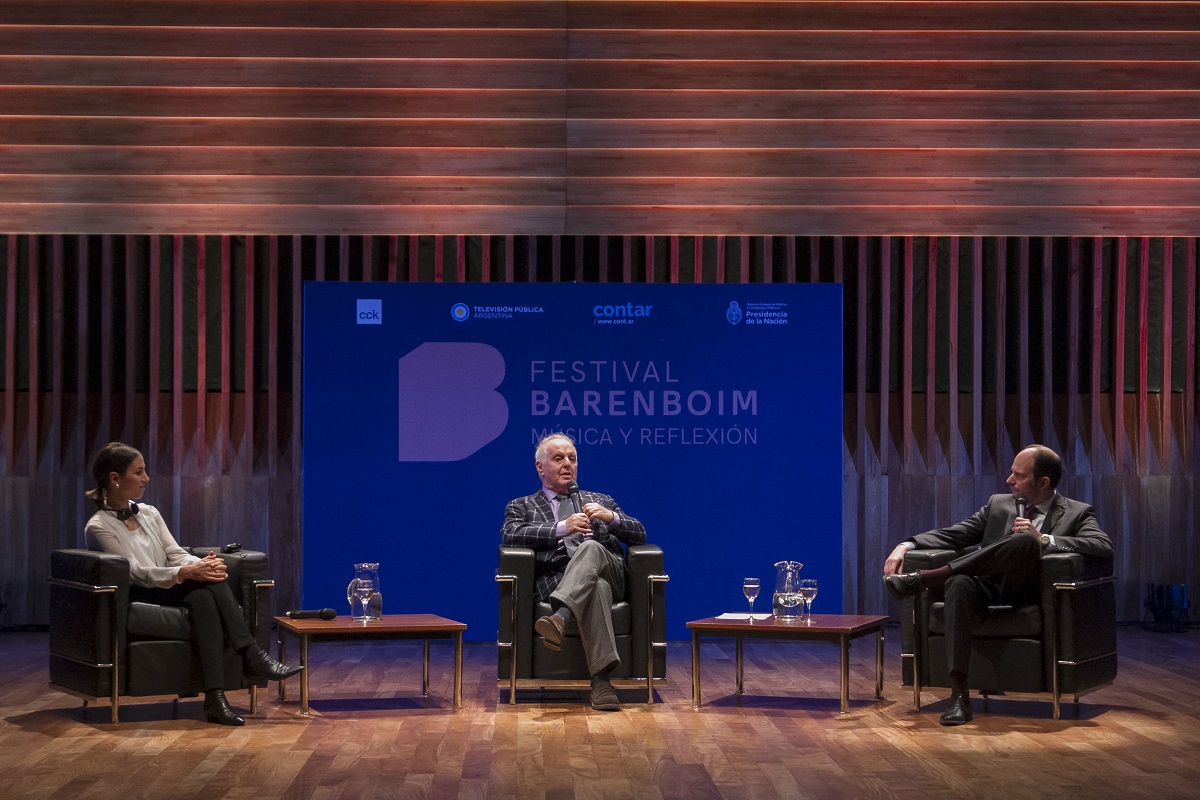
Rafael Kubelík as a model
There is no need for proof that Bedřich Smetana’s cycle of symphonic poems can be understood not only by Czechs, but also by foreign musicians. This can be seen from the number of outstanding performances by orchestras and conductors from around the world. Daniel Barenboim (* 1942) became familiar with Má vlast thanks to the founder of the Prague Spring Festival, the conductor Rafael Kubelík. “His interpretation has, to this day, remained the model for me”, he admits. Not just his words, but also his actions demonstrate him to be one of the great lovers of the work. He has repeatedly conducted Smetana’s cycle not only with the Vienna Philharmonic, but also with the Staatskapelle Berlin and the Chicago Symphony Orchestra, and he has made a CD recording of it. The performance of the work at the opening concert of the 2017 Prague Spring Festival became a major event and one of the pillars of the festival’s history. In a review for the music journal Harmonie titled “An international Má vlast that will go down in history”, Petr Veber wrote that “Barenboim’s conception was musically authoritative—the seal of a personality that does not seek but knows, that does not hesitate but fully and securely feels. It is the contribution of a conductor who communicates wonderfully and naturally with the players, who leads inconspicuously, and who does not conduct for effect.” On the occasion of the concert, the film director Martin Suchánek made a unique documentary titled Barenboim: Smetana – Má vlast.
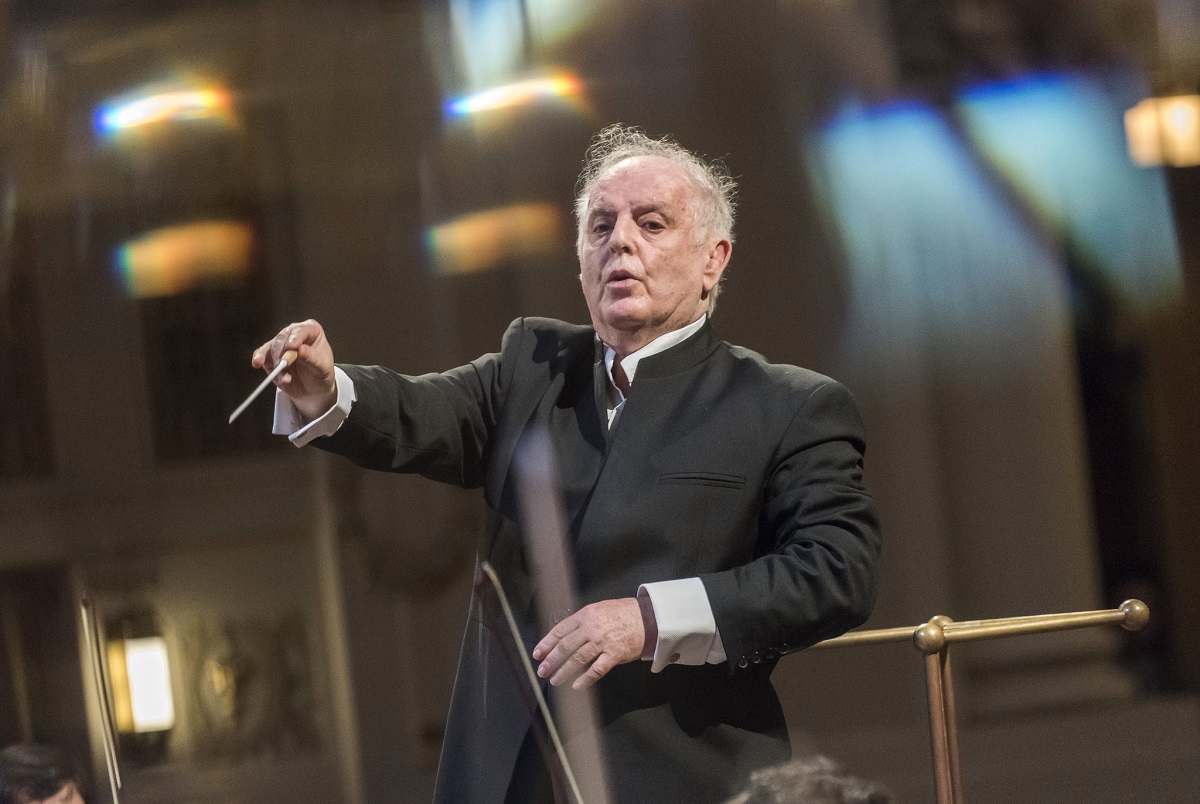
For the first time in 1966
Daniel Barenboim was born in Buenos Aires. As a boy he and his family moved from there to Israel. From childhood he began developing his talent for piano playing and conducting. When he played for the conductor Wilhelm Furtwängler in 1954, the great artist declared that the “Eleven-year-old Daniel Barenboim is a phenomenon”. To this day he pursues the parallel careers of a conductor and pianist, alternating solo recitals with conducting engagements, appearing as a soloist with orchestra and sometimes also conducting from the piano. During his long career, he has made regular guest appearances with the Vienna Philharmonic and the Berlin Philharmonic, and he has held the positions of chief conductor of the Orchestre de Paris (1975-1989) and music director of the Chicago Symphony Orchestra (1991-2006). Since 1992 he has been the general music director of the Staatsoper Unter den Linden in Berlin, and in 2000 the Staatskapelle Berlin chose him as its conductor for life. He first appeared at the Prague Spring Festival in 1966, when he conducted the English Chamber Orchestra from the piano. Since then, he has been returning to the festival regularly.
